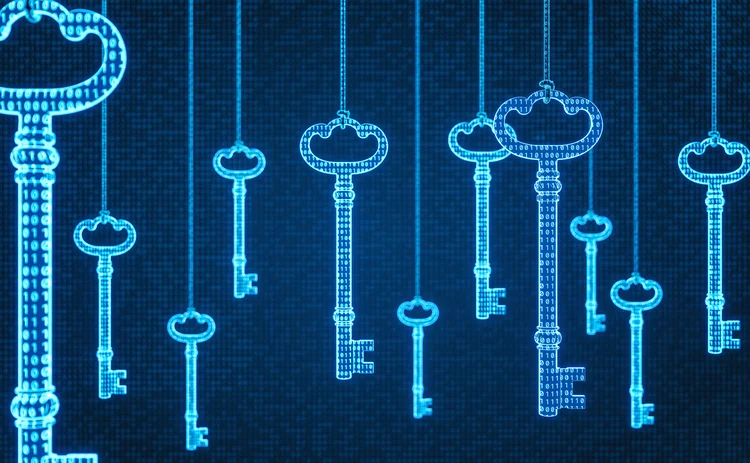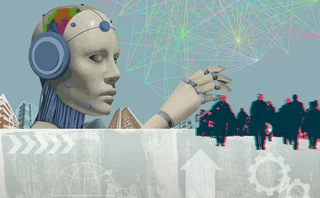CSDs Consider Entry into Crypto Market
The crypto markets need a body that fulfils the role of depositories adequately, say settlement specialists

A group of central securities depositories (CSDs)—specialist organizations that typically are responsible for holding securities such as shares so they can be easily transferred—are exploring how their roles are translatable to the crypto-asset infrastructure, in a sign that traditional finance’s biggest players are considering an entry to the market.
Walter Verbeke, global head of business model and innovation at Euroclear tells WatersTechnology that there are certain pieces of financial market infrastructure (FMI) and roles that CSDs as a central body plays today, that could be used in the crypto market.
“Tomorrow, those FMI roles will have to be played as well. And some of those pieces of infrastructure and some of those FMI roles will fall more naturally into our remit for what a CSD does. It’s very simple. What do we do as a business? Very simply, we provide safety and efficiency and that’s what people look for. If you have that then, a traditional investor base—for example, pension funds, and investment managers—will feel confident,” he says.
Elements of traditional market structure, such as proper custody agents and settlement specialists, are commonly cited among the key barriers to entry for institutional investors. While some projects have been announced by the largest digital currency exchanges, such as Coinbase, few of the existing custodians and CSDs in equities and other well-established markets have publicly spoken about firm plans to engage.
Part of the reason is due to the idiosyncrasies of the crypto market, which bear some resemblance to commodities in theory, but in practice hold their own concerns. While delivery and storage of physical products such as grain or metals, for instance, require warehousing and supply chains, crypto custody requires a high level of technical sophistication, such as cold storage of wallets and identification keys, and the ability to transfer assets between them. Blockchain technology provides an auditable means to do this on public ledgers, but this is not always regarded as suitable for professional-grade transactions, particularly those that may take place in the dark and cannot be publicly revealed.
Euroclear is one of the 28 CSDs that published a paper through the International Securities Services Association (ISSA) discussing how their roles are applicable to the crypto asset market.
Verbeke adds that there are a number of risks that exist in the market that drove the need to create CSDs some 50 years or so ago. “The market came together and created CSDs to mitigate those risks inherent to the capital market. If you and I buy something from each other, I need to know who you are. That would mean that I have a counterparty risk, a settlement risk, a liquidity risk, legal risk, jurisdictional risk, and so on. It doesn’t matter whether it’s with securities or fixed income—these risks are inherent to a capital market. That’s why the capital markets created an organization to mitigate those risks,” he says.
He says crypto assets are just another asset class in that same capital market. “So there’ll be those same risks again, but of course the way it’ll present itself will be a bit different. Today we have a centralized database. Tomorrow we will have a distributed ledger,” Verbeke says.
There are three things CSDs typically does, he says. They are responsible for safekeeping, safe settlement and to an extent, supporting market liquidity.
These three roles need to be fulfilled in the crypto market, too. Verbeke says the group of CSDs think they have a stronger role to play compared to others. “Why? Because we’ve been on that line of thinking for the last 50 years and even more. It’s not about the technology. We have procedures in place, we have standardizations, and we have people who know what to do whenever something goes wrong. As long as everything goes well, it’s fine. But when things go wrong, it’s about stability and being safe and efficient,” he says.
The crypto asset market needs someone who makes sure the rules are defined, not someone who defines the rules. “That’s the tricky thing,” Verbeke adds.
“It’s all about collaboration,” he says referring to the work Euroclear is doing with the other CSDs on this matter. “You come to a much richer solution by working with the custodians,” he says.
Only users who have a paid subscription or are part of a corporate subscription are able to print or copy content.
To access these options, along with all other subscription benefits, please contact info@waterstechnology.com or view our subscription options here: http://subscriptions.waterstechnology.com/subscribe
You are currently unable to print this content. Please contact info@waterstechnology.com to find out more.
You are currently unable to copy this content. Please contact info@waterstechnology.com to find out more.
Copyright Infopro Digital Limited. All rights reserved.
As outlined in our terms and conditions, https://www.infopro-digital.com/terms-and-conditions/subscriptions/ (point 2.4), printing is limited to a single copy.
If you would like to purchase additional rights please email info@waterstechnology.com
Copyright Infopro Digital Limited. All rights reserved.
You may share this content using our article tools. As outlined in our terms and conditions, https://www.infopro-digital.com/terms-and-conditions/subscriptions/ (clause 2.4), an Authorised User may only make one copy of the materials for their own personal use. You must also comply with the restrictions in clause 2.5.
If you would like to purchase additional rights please email info@waterstechnology.com
More on Emerging Technologies
Waters Wavelength Ep. 308: Arta Finance’s Caesar Sengupta
Caesar, who previously spent 15 years at Google, joins to discuss Arta’s goal of putting a private banker in everyone’s pockets.
Terry Duffy on CME’s cloud future, takeover targets, and ... candy
CME CEO Terry Duffy explains the relatively narrow strategy that the derivatives exchange has taken under his leadership, especially compared to its peers.
Waters Wavelength Ep. 307: The shrinking OMS landscape
This week, Tony and Nyela discuss FactSet’s recent acquisition of LiquidityBook and what it could signal for trading technology.
Banks urged to track vendor AI use, before it’s too late
Veteran third-party risk manager says contract terms and exit plans are crucial safeguards.
Market data woes, new and improved partnerships, acquisitions, and more
The Waters Cooler: BNY and OpenAI hold hands, FactSet partners with Interop.io, and trading technology gets more complicated in this week’s news round-up.
Waters Wavelength Ep. 306: Reykjavik and market data
Reb is back on the podcast to talk about her trip to Reykjavik, as well as two market data reports released this month.
BlackRock tests ‘quantum cognition’ AI for high-yield bond picks
The proof of concept uses the Qognitive machine learning model to find liquid substitutes for hard-to-trade securities.
JP Morgan, Eurex push for DLT-driven collateral management
The high-stakes project could be a litmus test for the use of blockchain technology in the capital markets.






